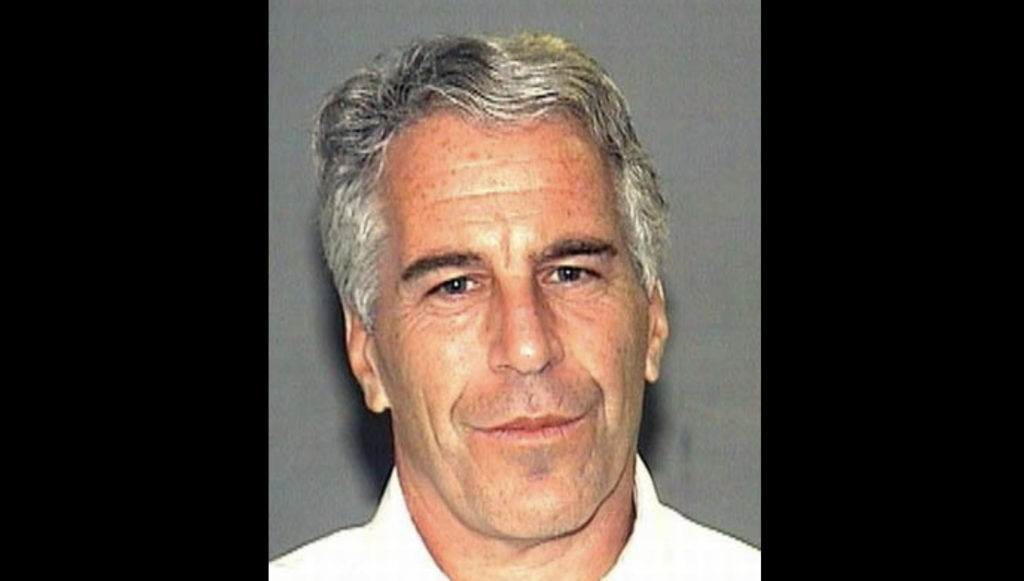I told you so

Everyone has known someone – or perhaps they are that someone themselves – who oft-times begins a sentence with, “I hate to say I told you so …” Not me. I don’t mind saying it at all. Particularly when I’ve stood up against a prodigious, bellicose consensus and, instead of going along with that consensus, I championed a differing point of view, a point of view that insisted on following wherever the best evidence, and not my personal prejudice, led.
I’m referring, of course, to my position on the Jeffrey Epstein suicide, which Epstein’s death now officially is. I maintained, from the beginning, that suicide was by far the likeliest cause of Jeffrey Epstein’s death. I went up against a mighty roster of people who insisted Epstein was murdered, including pundits, actors, filmmakers and politicians. I was unimpressed by the various rationales of my distinguished opposition.
Notice the important difference between my position and theirs, however. I referred to suicide as being the “likeliest” cause of death while many of my detractors “insisted” he was murdered. I wasn’t merely siding with the best probability, I was also being careful not to be sweepingly categorical. So it wasn’t an argument for a position so much as a call to be careful and side with the statistically most likely point of view, a call that was largely both ignored and misunderstood by so many who were “absolutely certain” Epstein was murdered, and would not brook any disagreement, particularly from me.
To a dry, academic and timid extent the New York Times and the BBC agreed with me. They both used similar language to each other, characterizing the conspiracy furor surrounding Epstein’s death as a wave of “wild” conspiracies where people speculated “without evidence” that Epstein was murdered. But this language was typically buried in the context of the surrounding story and seldom emphasized, as if they’d taken lessons in understatement from Robert Mueller himself.
This point needed to be shouted from the proverbial rooftops, if for no other reason than to counteract the irresponsible speculation this case has engendered. A favorite point, endlessly repeated by an endless procession of smug prognosticators, as if they and no one else thought of it themselves first, was the notion of “how many people stood to gain” by Epstein’s death. I would dare say that describes half the people on the planet. I can think of ten people off the top of my head where the world would be far better off without them in it. But, for that matter, would I be correct to accuse you of murder because your great uncle Fred died and left you a million dollars? After all, you had means, motive and opportunity. And you certainly stood to gain by his death!
It’s a stupid reason to accuse a group of people of murder, and that’s why it never happens in responsibly run jurisdictions. “Having something to gain by their death” is what a prosecutor adds to a solid case buttressed by lots and lots of forensic and/or eyewitness evidence first. But in this particular case, it’s not even certain anyone had anything to gain by Epstein’s death. Nor do any of the conspiracy theorists offer any such evidence, apart from what they desperately want to be true courtesy of their own peculiar ignorance, which is another matter entirely.
The instance of the broken bones in Epstein’s neck has been seized upon and held up by the conspiracy crowd as “proof” he was murdered, and it is one of the most laughable examples of how sloppy their thinking can get. The point was firmly made by the coroner that these bones occasionally get broken in suicides and often in murder, and the conclusion-leapers in the conspiracy crowd hear the word “murder” and do what they do best, they leap to conclusions. But since the autopsy report has come back as suicide by hanging, the broken bones are consistent with that conclusion, particularly as such bones tend to get brittle in older persons, and Epstein was 66. There is therefore nothing sinister about the broken bones, nothing at all, no matter how much you may wish it to be otherwise.
Then there’s the question of Donald Trump and William Barr, the two men most often accused of arranging Epstein’s murder. Donald Trump is one of the biggest cowards I have ever seen in my life. He’s certainly evil enough to have someone murdered, but he isn’t strong or bold enough, not by a long shot. And Barr? Oh come on, the man couldn’t even summon the intestinal fortitude to testify before the House Judiciary Committee. Does anyone really believe that a cringing little worm like William Barr has the cojones to have someone whacked? I could carve a better man out of a banana.
The truly sad part to all of this nonsense is, as ever, that the real losers in this matter are the voiceless, the weak, the powerless. I am referring to Jeffrey Epstein’s rape victims. Not only will they never get to see the evil bastard brought to his full measure of justice, they must also have to endure the reckless narrative that their very own government short-circuited justice and had him murdered, victimizing them all over again. And it’s for their sake, above all, I say shame on any of you who continue to participate in this egregious scandal of reckless conspiracy mongering.

Robert Harrington is an American expat living in Britain. He is a portrait painter.
